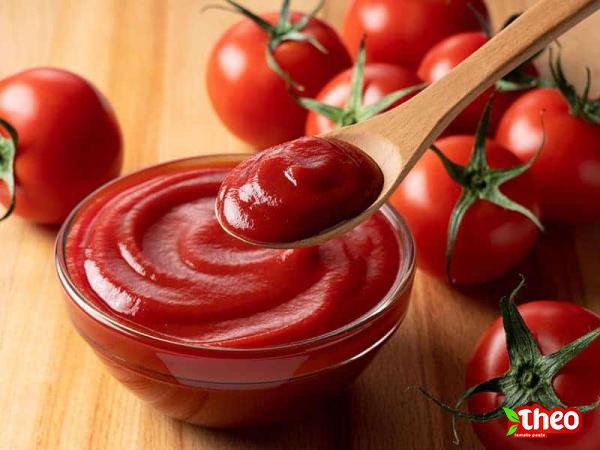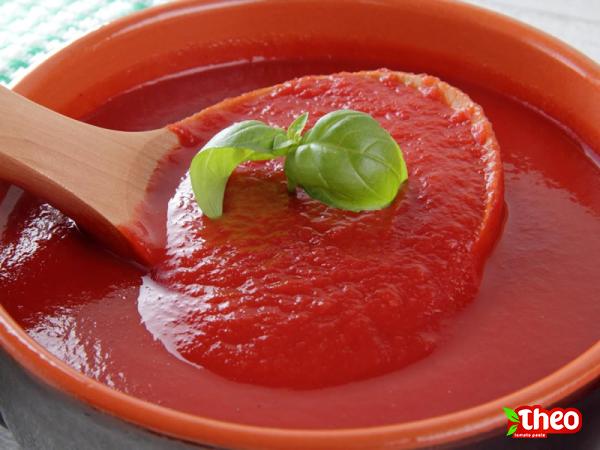Exploring the Delectable World of Tomato Pasta Sauce Introduction: Tomato pasta sauce is a beloved culinary delight enjoyed by millions around the globe. This versatile and timeless sauce has the power to elevate any pasta dish with its rich flavors and vibrant colors. In this article, we will delve into the world of tomato pasta sauce, exploring its origins, the various types available, and the reasons behind its enduring popularity. 1. Origins of Tomato Pasta Sauce: Tomato pasta sauce has its roots in Italian cuisine, specifically in the region of Naples. The first documented recipe for tomato sauce dates back to the late 18th century. However, it wasn’t until the late 19th century that tomato sauce gained widespread popularity, thanks to the influence of Italian immigrants in the United States. 2. The Basic Ingredients: The traditional tomato pasta sauce typically includes tomatoes, onions, garlic, herbs (such as basil, oregano, and parsley), olive oil, salt, and pepper. This simple yet flavorful combination forms the foundation of many tomato sauce variations. 3. Varieties of Tomato Pasta Sauce: a. Marinara Sauce: Marinara sauce is one of the most popular tomato pasta sauce variations. It is a light and tangy sauce made from tomatoes, garlic, onions, olive oil, and herbs. Marinara sauce is versatile and pairs well with a wide range of pasta dishes. b. Arrabbiata Sauce: Arrabbiata sauce is a spicy tomato sauce that adds a kick to your pasta. It includes ingredients like tomatoes, garlic, onions, chili flakes, and sometimes even pancetta or bacon. This fiery sauce is perfect for those who enjoy a touch of heat in their meals. c. Bolognese Sauce: Bolognese sauce is a hearty and flavorful tomato-based sauce complemented with ground meat (typically beef or pork), vegetables, and herbs. This sauce requires a longer cooking time to allow the flavors to meld together, resulting in a rich and savory pasta topping. d. Carbonara Sauce: Carbonara sauce is a creamy tomato pasta sauce that often features ingredients like eggs, bacon or pancetta, Parmesan cheese, and black pepper. This indulgent sauce pairs perfectly with spaghetti or fettuccine and is a true comfort food. e. Pesto Sauce: Although not strictly a tomato sauce, pesto sauce deserves a mention due to its popularity as a pasta topping. Pesto is made from fresh basil leaves, garlic, pine nuts, Parmesan cheese, and olive oil. It adds a refreshing and aromatic element to pasta dishes.
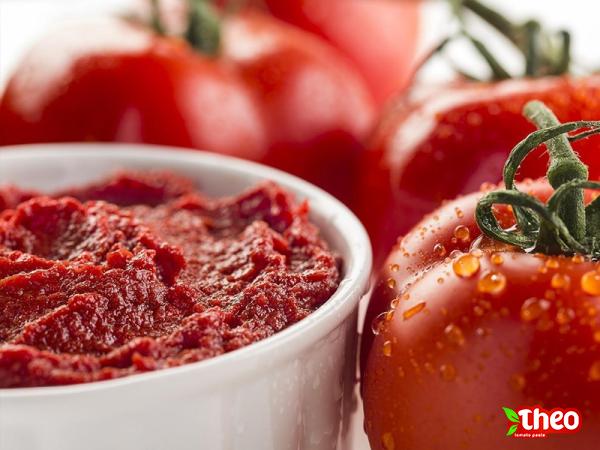
tomato paste
 4. Health Benefits of Tomato Pasta Sauce: Tomatoes, the key ingredient of tomato paste sauce, are packed with essential vitamins, minerals, and antioxidants. They are known for their potential health benefits, including reducing the risk of chronic diseases, improving heart health, and promoting healthy skin. Additionally, tomato sauce is a good source of lycopene, a powerful antioxidant that may help prevent certain types of cancer. 5. Tomato Pasta Sauce in Culinary Culture: Tomato pasta sauce has become an integral part of culinary cultures worldwide. It has effortlessly integrated itself into various international cuisines, including American, Mexican, and Indian. The adaptability of tomato sauce allows it to coexist harmoniously with local flavors and ingredients, creating unique fusion dishes. 6. Tips for Making and Enhancing Tomato Pasta Sauce: a. Using Fresh Tomatoes: While using canned tomatoes is convenient, using fresh tomatoes will give your sauce a burst of natural sweetness and flavor. Choose ripe tomatoes and blanch, peel, and deseed them before adding them to your sauce. b. Slow-Cooking: Allowing your tomato sauce to simmer slowly over low heat enhances its flavors. This process enables the ingredients to meld together, resulting in a more intense taste. c. Adding Wine: Adding a splash of wine, such as red wine for a meaty sauce or white wine for a lighter sauce, can provide depth and complexity to your tomato pasta sauce. d. Using Fresh Herbs: Fresh herbs, such as basil or oregano, can elevate the taste of your sauce. Add them toward the end of the cooking process to preserve their freshness and vibrant flavors. e. Experimenting with Ingredients: Feel free to experiment by adding vegetables like bell peppers, mushrooms, or zucchini to your tomato sauce to add extra texture and nutritional value. You can also incorporate spices, like cumin or paprika, to create unique flavor profiles.
4. Health Benefits of Tomato Pasta Sauce: Tomatoes, the key ingredient of tomato paste sauce, are packed with essential vitamins, minerals, and antioxidants. They are known for their potential health benefits, including reducing the risk of chronic diseases, improving heart health, and promoting healthy skin. Additionally, tomato sauce is a good source of lycopene, a powerful antioxidant that may help prevent certain types of cancer. 5. Tomato Pasta Sauce in Culinary Culture: Tomato pasta sauce has become an integral part of culinary cultures worldwide. It has effortlessly integrated itself into various international cuisines, including American, Mexican, and Indian. The adaptability of tomato sauce allows it to coexist harmoniously with local flavors and ingredients, creating unique fusion dishes. 6. Tips for Making and Enhancing Tomato Pasta Sauce: a. Using Fresh Tomatoes: While using canned tomatoes is convenient, using fresh tomatoes will give your sauce a burst of natural sweetness and flavor. Choose ripe tomatoes and blanch, peel, and deseed them before adding them to your sauce. b. Slow-Cooking: Allowing your tomato sauce to simmer slowly over low heat enhances its flavors. This process enables the ingredients to meld together, resulting in a more intense taste. c. Adding Wine: Adding a splash of wine, such as red wine for a meaty sauce or white wine for a lighter sauce, can provide depth and complexity to your tomato pasta sauce. d. Using Fresh Herbs: Fresh herbs, such as basil or oregano, can elevate the taste of your sauce. Add them toward the end of the cooking process to preserve their freshness and vibrant flavors. e. Experimenting with Ingredients: Feel free to experiment by adding vegetables like bell peppers, mushrooms, or zucchini to your tomato sauce to add extra texture and nutritional value. You can also incorporate spices, like cumin or paprika, to create unique flavor profiles.
Specifications of tomato paste
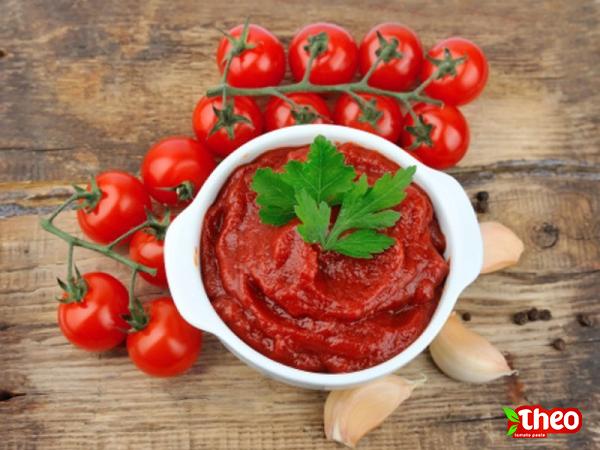 Conclusion: Tomato pasta sauce is a beloved culinary staple that has stood the test of time. From its humble origins in Naples to its worldwide popularity today, tomato sauce continues to bring joy to pasta lovers everywhere. Whether you opt for the classic marinara, the fiery arrabbiata, or the indulgent carbonara, tomato pasta sauce offers endless possibilities for flavor experimentation and culinary creativity. So, next time you find yourself craving a hearty bowl of pasta, reach for the vibrant and delicious homemade tomato pasta sauce that never fails to satisfy.Title: Exploring the Delectable World of Tomato Pasta Sauce 1. The Growing Demand for Authentic Tomato Pasta Sauce In recent years, there has been a growing demand for authentic tomato pasta sauce among consumers worldwide. This can be attributed to several factors, including the increased popularity of Italian cuisine, the rise of home cooking, and the desire for healthier and more natural food options. People are seeking high-quality and flavorful tomato pasta sauce that can enhance their homemade dishes without the need for preservatives or artificial additives. 2. Artisanal Tomato Pasta Sauces: A Rise in Small-Batch Production Just like other food products, the market for tomato pasta sauce has seen a rise in artisanal and small-batch production. Artisanal sauces are often made in small quantities using premium ingredients, and their production methods prioritize traditional techniques and attention to detail. These sauces can offer unique flavor profiles and provide consumers with a gourmet experience that sets them apart from mass-produced alternatives. 3. The Popularity of Internet-Based Sauce Businesses With the advent of e-commerce, a significant trend in the tomato pasta sauce industry has been the rise of internet-based sauce businesses. These businesses typically offer a wide range of sauces, including tomato-based variations, made with high-quality ingredients. The convenience of online ordering coupled with the ability to access a variety of sauce options from different regions has contributed to the popularity of these businesses among consumers seeking to elevate their pasta dishes.
Conclusion: Tomato pasta sauce is a beloved culinary staple that has stood the test of time. From its humble origins in Naples to its worldwide popularity today, tomato sauce continues to bring joy to pasta lovers everywhere. Whether you opt for the classic marinara, the fiery arrabbiata, or the indulgent carbonara, tomato pasta sauce offers endless possibilities for flavor experimentation and culinary creativity. So, next time you find yourself craving a hearty bowl of pasta, reach for the vibrant and delicious homemade tomato pasta sauce that never fails to satisfy.Title: Exploring the Delectable World of Tomato Pasta Sauce 1. The Growing Demand for Authentic Tomato Pasta Sauce In recent years, there has been a growing demand for authentic tomato pasta sauce among consumers worldwide. This can be attributed to several factors, including the increased popularity of Italian cuisine, the rise of home cooking, and the desire for healthier and more natural food options. People are seeking high-quality and flavorful tomato pasta sauce that can enhance their homemade dishes without the need for preservatives or artificial additives. 2. Artisanal Tomato Pasta Sauces: A Rise in Small-Batch Production Just like other food products, the market for tomato pasta sauce has seen a rise in artisanal and small-batch production. Artisanal sauces are often made in small quantities using premium ingredients, and their production methods prioritize traditional techniques and attention to detail. These sauces can offer unique flavor profiles and provide consumers with a gourmet experience that sets them apart from mass-produced alternatives. 3. The Popularity of Internet-Based Sauce Businesses With the advent of e-commerce, a significant trend in the tomato pasta sauce industry has been the rise of internet-based sauce businesses. These businesses typically offer a wide range of sauces, including tomato-based variations, made with high-quality ingredients. The convenience of online ordering coupled with the ability to access a variety of sauce options from different regions has contributed to the popularity of these businesses among consumers seeking to elevate their pasta dishes.
buy tomato paste
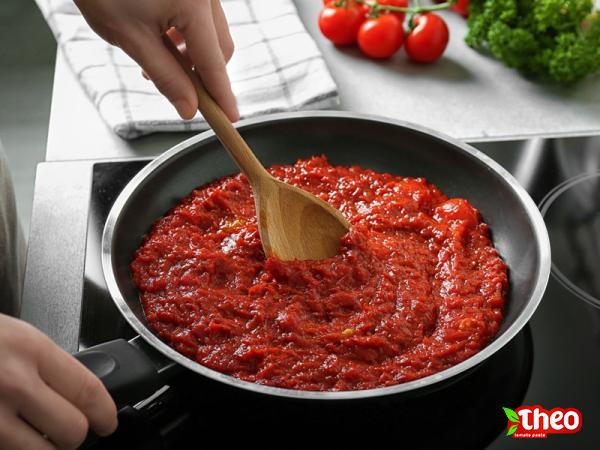 4. Organic and Healthy Tomato Pasta Sauces As health-consciousness continues to grow, the demand for organic and healthier versions of tomato pasta sauce has also surged. Many consumers are seeking sauces made from organic tomatoes, free from pesticides and other harmful chemicals. Additionally, there is a demand for low-sodium or sugar-free tomato sauce options that cater to specific dietary restrictions or preferences. 5. Collaborations and Innovative Flavors In an effort to stand out in a competitive market, some sauce manufacturers are collaborating with renowned chefs or other culinary experts to create innovative and unique tomato pasta sauce flavors. These collaborations often result in the introduction of unexpected ingredients, such as truffles, roasted red peppers, or sun-dried tomatoes, which add new dimensions to traditional tomato sauces. This approach allows sauce brands to offer consumers exciting flavor combinations that can elevate their pasta dishes to the next level. 6. Product Packaging and Sustainability In recent years, there has been a greater emphasis on sustainable packaging within the food industry, and tomato pasta sauce is no exception. Many sauce manufacturers are opting for eco-friendly packaging materials, such as glass jars or recyclable plastic containers. This shift toward sustainability not only aligns with consumer values but also helps to minimize the environmental impact of the packaging process. 7. Private Label Brands in the Tomato Pasta Sauce Market Private label brands, also known as store brands or own-label brands, have gained significant traction in the tomato pasta sauce market. These brands are typically sold exclusively by a specific retailer and offer a more affordable alternative to national or international sauce brands. Private label brands can provide consumers with accessible options while maintaining high quality and flavor standards. 8. International Markets and Export Opportunities The demand for tomato pasta sauce is not limited to specific regions, as this versatile sauce has gained popularity worldwide. Italy remains a significant exporter of tomato pasta sauces, given its rich culinary heritage. However, other countries, such as the United States and Mexico, have also made significant contributions to the global tomato pasta sauce market. Export opportunities present a lucrative option for sauce manufacturers looking to expand their reach and cater to diverse consumer preferences. 9. Marketing and Branding Strategies Effective marketing and branding strategies play a crucial role in the success of sauce businesses. Companies often focus on creating a strong brand identity through eye-catching labels, packaging design, and compelling storytelling. Engaging with consumers through social media platforms and influencer collaborations is another popular strategy to generate brand awareness and drive sales. Additionally, participation in food expos and culinary events allows sauce manufacturers to showcase their products directly to a targeted audience. 10. Competitive Landscape and Market Consolidation The tomato pasta sauce market is highly competitive, with numerous established brands vying for consumer attention. Over time, some sauce manufacturers have undergone mergers or acquisitions to strengthen their market position. Market consolidation has allowed companies to pool resources, expand their product portfolios, and streamline operations. However, this trend has also created opportunities for smaller, niche players to enter the market and offer unique sauce options tailored to specific consumer preferences. Conclusion: The tomato pasta sauce industry continues to thrive and evolve, driven by the demand for authentic, flavorful, and high-quality sauce options. From artisanal productions and internet-based businesses to the rise of healthier and sustainable alternatives, the market is experiencing a period of innovation and diversification. As consumers become increasingly discerning about the sauces they use in their homemade dishes, sauce manufacturers have the opportunity to differentiate themselves through flavor innovations, sustainable practices, and effective marketing strategies. Whether it is a classic marinara or a bold arrabbiata, tomato pasta sauce continues to captivate taste buds and inspire culinary adventures around the world.
4. Organic and Healthy Tomato Pasta Sauces As health-consciousness continues to grow, the demand for organic and healthier versions of tomato pasta sauce has also surged. Many consumers are seeking sauces made from organic tomatoes, free from pesticides and other harmful chemicals. Additionally, there is a demand for low-sodium or sugar-free tomato sauce options that cater to specific dietary restrictions or preferences. 5. Collaborations and Innovative Flavors In an effort to stand out in a competitive market, some sauce manufacturers are collaborating with renowned chefs or other culinary experts to create innovative and unique tomato pasta sauce flavors. These collaborations often result in the introduction of unexpected ingredients, such as truffles, roasted red peppers, or sun-dried tomatoes, which add new dimensions to traditional tomato sauces. This approach allows sauce brands to offer consumers exciting flavor combinations that can elevate their pasta dishes to the next level. 6. Product Packaging and Sustainability In recent years, there has been a greater emphasis on sustainable packaging within the food industry, and tomato pasta sauce is no exception. Many sauce manufacturers are opting for eco-friendly packaging materials, such as glass jars or recyclable plastic containers. This shift toward sustainability not only aligns with consumer values but also helps to minimize the environmental impact of the packaging process. 7. Private Label Brands in the Tomato Pasta Sauce Market Private label brands, also known as store brands or own-label brands, have gained significant traction in the tomato pasta sauce market. These brands are typically sold exclusively by a specific retailer and offer a more affordable alternative to national or international sauce brands. Private label brands can provide consumers with accessible options while maintaining high quality and flavor standards. 8. International Markets and Export Opportunities The demand for tomato pasta sauce is not limited to specific regions, as this versatile sauce has gained popularity worldwide. Italy remains a significant exporter of tomato pasta sauces, given its rich culinary heritage. However, other countries, such as the United States and Mexico, have also made significant contributions to the global tomato pasta sauce market. Export opportunities present a lucrative option for sauce manufacturers looking to expand their reach and cater to diverse consumer preferences. 9. Marketing and Branding Strategies Effective marketing and branding strategies play a crucial role in the success of sauce businesses. Companies often focus on creating a strong brand identity through eye-catching labels, packaging design, and compelling storytelling. Engaging with consumers through social media platforms and influencer collaborations is another popular strategy to generate brand awareness and drive sales. Additionally, participation in food expos and culinary events allows sauce manufacturers to showcase their products directly to a targeted audience. 10. Competitive Landscape and Market Consolidation The tomato pasta sauce market is highly competitive, with numerous established brands vying for consumer attention. Over time, some sauce manufacturers have undergone mergers or acquisitions to strengthen their market position. Market consolidation has allowed companies to pool resources, expand their product portfolios, and streamline operations. However, this trend has also created opportunities for smaller, niche players to enter the market and offer unique sauce options tailored to specific consumer preferences. Conclusion: The tomato pasta sauce industry continues to thrive and evolve, driven by the demand for authentic, flavorful, and high-quality sauce options. From artisanal productions and internet-based businesses to the rise of healthier and sustainable alternatives, the market is experiencing a period of innovation and diversification. As consumers become increasingly discerning about the sauces they use in their homemade dishes, sauce manufacturers have the opportunity to differentiate themselves through flavor innovations, sustainable practices, and effective marketing strategies. Whether it is a classic marinara or a bold arrabbiata, tomato pasta sauce continues to captivate taste buds and inspire culinary adventures around the world.



